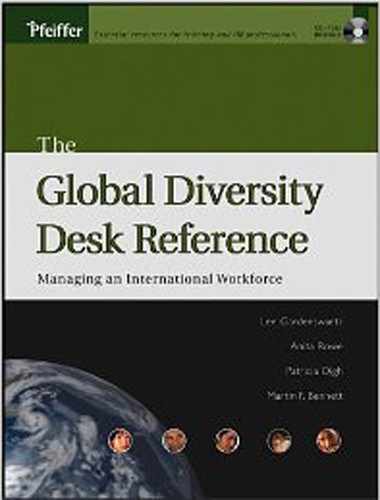5.3. I OR THOU?
Much of the research around cultural difference centers on the difference between how individualist and collectivist cultures define and respond to conflict. The hallmarks of these two approaches are outlined below:
| Individualist Cultures | Collectivist Cultures |
|---|---|
| Conflict is outcome-focused | Conflict is process-focused |
| Conflict is dealt with openly and honestly | Face work management done before substantive issue discussion |
| Success comes with tangible outcomes or action plans | Success comes with mutual face saving |
| Goals of individuals addressed | Interpreted in terms of group |
| Achievement is important | Harmony is important |
| Communication is direct | Communication is indirect |
As indicated above, resolving intercultural conflict is made more difficult by the fact that individualists and collectivists hold different ideas of what constitutes effective and appropriate practices in conflict resolution.
In individualistic cultures, people tend to be more verbally direct and open. Self-disclosure, clarity, and being straightforward are all part of this cultural norm. Indirect communication is preferred in collectivist cultures because the image of group harmony is vital. Western cultures value talking as a means of solving issues; in Eastern cultures there is a higher value placed on observing and reflecting. American managers often make the mistake of interpreting silence on the part of Asian counterparts as consent, while Asian managers err in reading a U.S. colleague's direct adversarial arguments as indicating unreasonableness and lack of respect.[]
Members of collectivist cultures perceive and manage conflict differently than do those in individualistic cultures, adopting different strategies to resolve conflict, holding different expectations about possible outcomes, and being motivated by different causes.[] For example, the Chinese culture is collective and "high context," emphasizing group harmony and interdependence, while North American culture is individualistic and "low context," emphasizing individual rights and independence. The very concept of person in Chinese culture and language, "Ren," is not of an individual person, but the person's interactions or transactions with fellow human beings. Chinese tend to see behavior resulting from social pressures, while Americans see behavior as a result of individual volition.
In individualist cultures, conflict is likely to occur when individuals' expectations of appropriate behavior are violated, while conflict occurs in collectivist cultures when the group's normative expectations for behavior are violated.[]
Ting-Toomey notes that collective societies tend to avoid open conflict and resolve conflict in inner circles before it becomes public or serious. Chinese, for example, often use delaying techniques[] and more obliging and avoiding conflict-resolution styles than do Americans. Research has shown that Japanese use an avoiding strategy 48 percent of the time, compared to Americans, who use avoiding as a conflict-management strategy only 22 percent of the time.[]
Executives from individualist cultures are typically more receptive to differences in behavior, believing that deviation from group norms contributes to a diversity of opinion and, ultimately, better achievement of group goals.[]
In a study of Chinese and Canadian executives, researchers found that executives from the PRC focused on concern for social relationships more than Canadians in their decisions, while the Canadians showed more concern for goal achievement. Chinese executives also were more inclined to classify the world into extremes—black or white, good or evil—and more likely to consult their superiors in conflict situations.
PRC executives react more negatively to conflicts than do their Canadian counterparts; their inclination is to discontinue negotiation or threaten to withdraw, particularly in relationship-related conflicts. PRC executives also show a greater inclination to be motivated by their sense of "self-esteem." "Self" in group-focused Chinese culture is defined in relationship to the other "selves" in groups to which one has long-term affiliation.[]
Members of individualist cultures like the United States tend to separate the issue on which they are having conflict from the person with whom they have the conflict, while members of collectivist cultures generally do not make the same distinction. For example, Japanese managers consider criticism of their ideas to be personal attacks, while most American managers do not.
Ting-Toomey's research has also revealed that members of individualistic cultures are more likely to possess a confrontational, direct attitude toward conflicts than are members of collectivist cultures. Some differences are outlined below.
| Individualist Cultures | Collectivist Cultures |
|---|---|
| Short-term | Long-term |
| Confrontational, direct attitude | Nonconfrontational, indirect attitude |
| Concern for self | Concern for others |
| Concern with immediate situation | Focus on long-term relationship with other |
| Little use of mediators or, if used, formal mediation | Use of informal mediators |
The concept of trust is an important one in conflict situations; it too is culturally influenced. "Trust in a business context depends on the ability to interpret culturally coded signs."[]
The word "trust" is also culturally coded—trust means to rely on the consistency of another's credibility, words, and behaviors, but how trust is exhibited varies by culture. For instance, in low power distance cultures, trust is often based on charismatic personality traits, personal credibility, and persuasive words. In high power distance cultures, it is usually based on credible roles and dependable networks.
Culture influences the ways in which the arguments of counterparts are countered—whether by objective facts (North Americans), subjective feelings (Arabs), or asserted ideals (Russians). The length of the perceived relationship also differs, from short-term (North American) to long-term (Arabs), and no continuing relationship (Russians).
